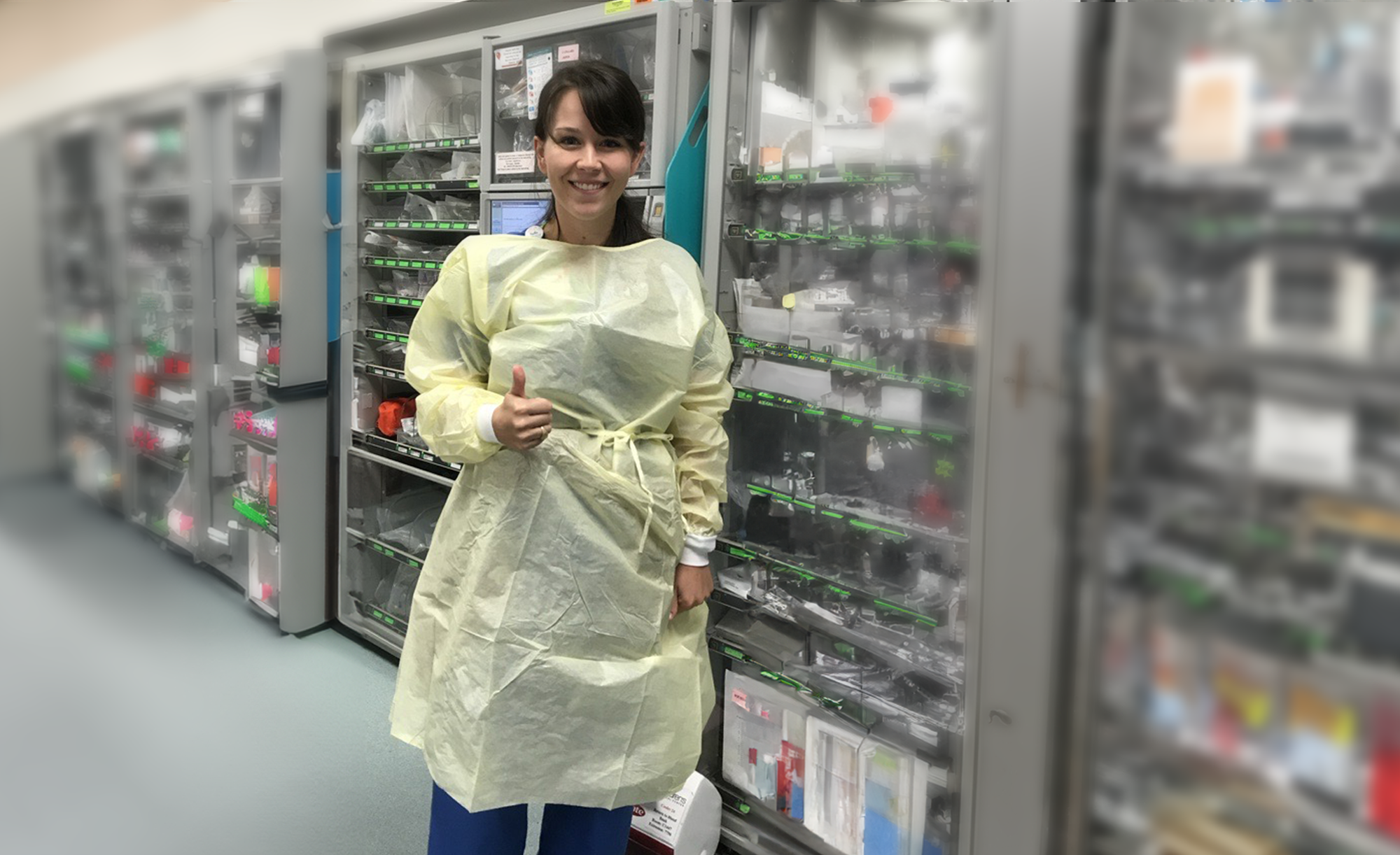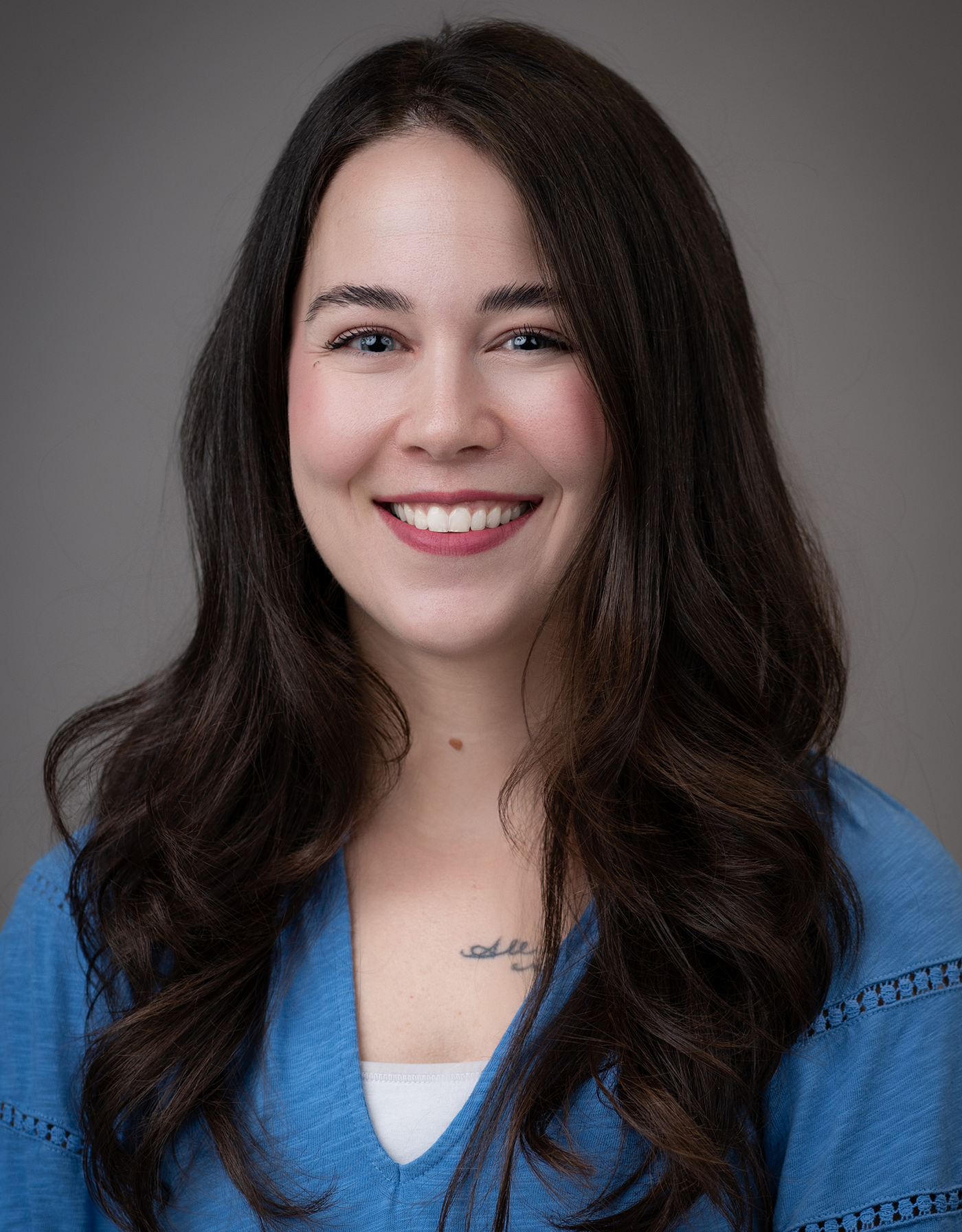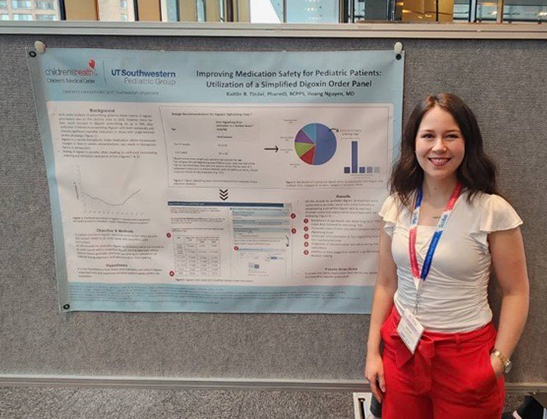
For Kaitlin Tindel, a member of Texas A&M University’s class of 2013, the path to a fulfilling career in clinical pediatric pharmacy began with a spark of curiosity and a love for chemistry. Though her academic journey did not begin at Texas A&M, it did not take long for her to realize where she truly belonged.
“I started my undergraduate career at Incarnate Word, a small private university in San Antonio,” Tindel said. “I had an intent to study chemistry from the beginning and was fortunate to have some wonderful mentors who encouraged me to consider a larger state school to open more doors, especially for postgraduate opportunities.”
Her campus visit to Aggieland—and a conversation with Dr. Holly Gaede—sealed the deal. In the Department of Chemistry, Gaede is an instructional professor and assistant department head for undergraduate studies.

“Despite the size of the university, there was such a small community feel within the Chemistry Department,” Tindel said. “It was the best of both worlds: meaningful contact with professors and the vast resources of a top-tier research institution. Once I had that fit, poof! It was magic—there was no other place for me.”
Finding Her Niche
While Tindel entered the chemistry program with plans to pursue a doctoral degree, her experience in upper-level science courses began to shift her trajectory.
“What really spoke to me was the application of basic science principles into something tangible, like biochemistry. I vividly remember a physical chemistry lab about cellular lipid bilayers—that lab struck me as the perfect intersection of my interests,” Tindel said.
She began exploring career paths that combined her passion for chemistry with her desire to help people. That exploration led to a pivot toward medicine and clinical pharmacy.
A Career Rooted in Science and Service
After earning her bachelor’s degree in chemistry from Texas A&M in 2013, Tindel went on to earn a Ph.D. In pharmacy at the University of Houston in 2017, followed by a residency in pediatric pharmacy at Children’s Medical Center Dallas. Today, she serves as a clinical pharmacy specialist in Acute Care Pediatric Cardiology at Children’s Health, also in Dallas.
Despite the size of Texas A&M, the Chemistry Department had a small community feel. It was the best of both worlds—close contact with professors and the resources of a top-tier research school. Once I had that fit, poof! It was magic.
Tindel’s chemistry degree has played a key role in her success. She uses core principles from general and organic chemistry every day—whether she is analyzing drug structures, understanding how medications bind to receptors, or calculating precise pediatric doses based on kinetic half-lives. Her work is rooted in science, but at its heart, it is about helping people—especially children—live healthier, fuller lives.
“There’s nothing more fulfilling than applying those principles to help children live healthier, fuller lives,” Tindel said.

Advice for Future Aggie Chemists
Tindel encourages other students to find strong mentors and carefully consider what they enjoy most about chemistry. She believes that understanding what they genuinely enjoy can help identify a career that brings joy and purpose. For her, it is witnessing the real-world impact of science.
“Seek advice, especially when you’re unsure of your strengths,” Tindel said. “Mentors like Dr. Gaede were absolutely instrumental for me.”
Why Texas A&M?
Tindel chose to be an Aggie because it gave her something special—a powerful sense of community and amazing opportunities to grow. The support she found in her classes, along with the connections she made through the Aggie Network, helped guide her from studying chemistry to working in a pediatric cardiology unit. Her story shows how a Texas A&M education can make a real difference and help students reach their goals.

